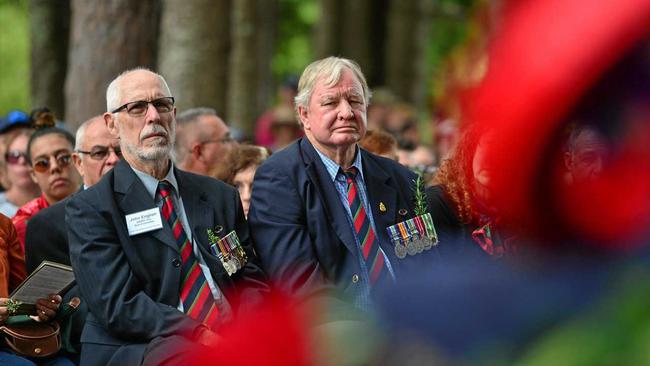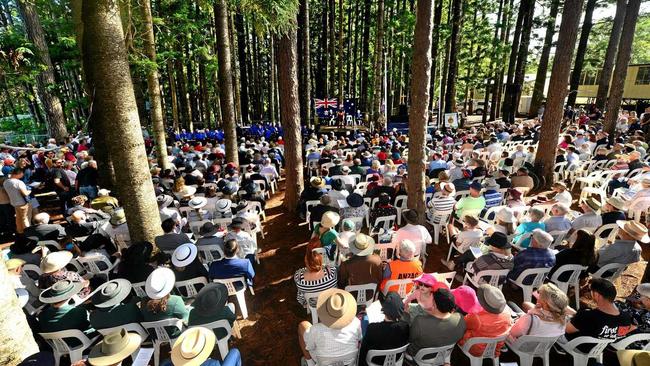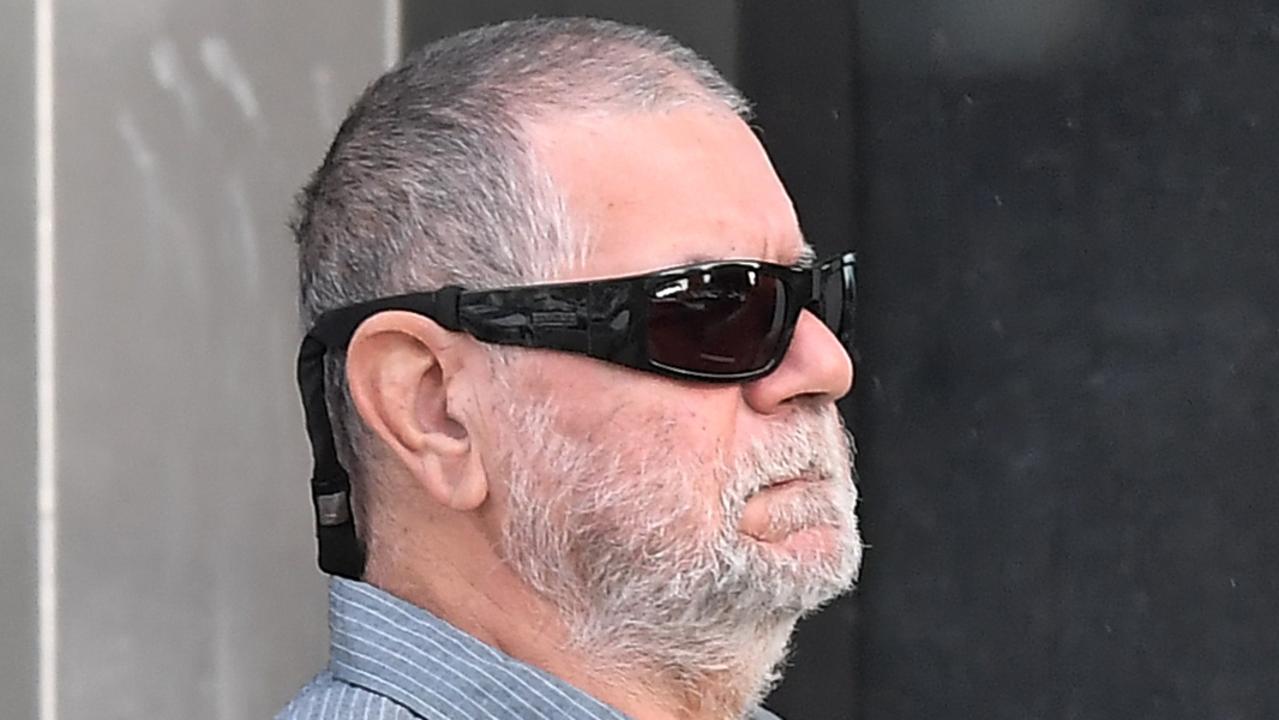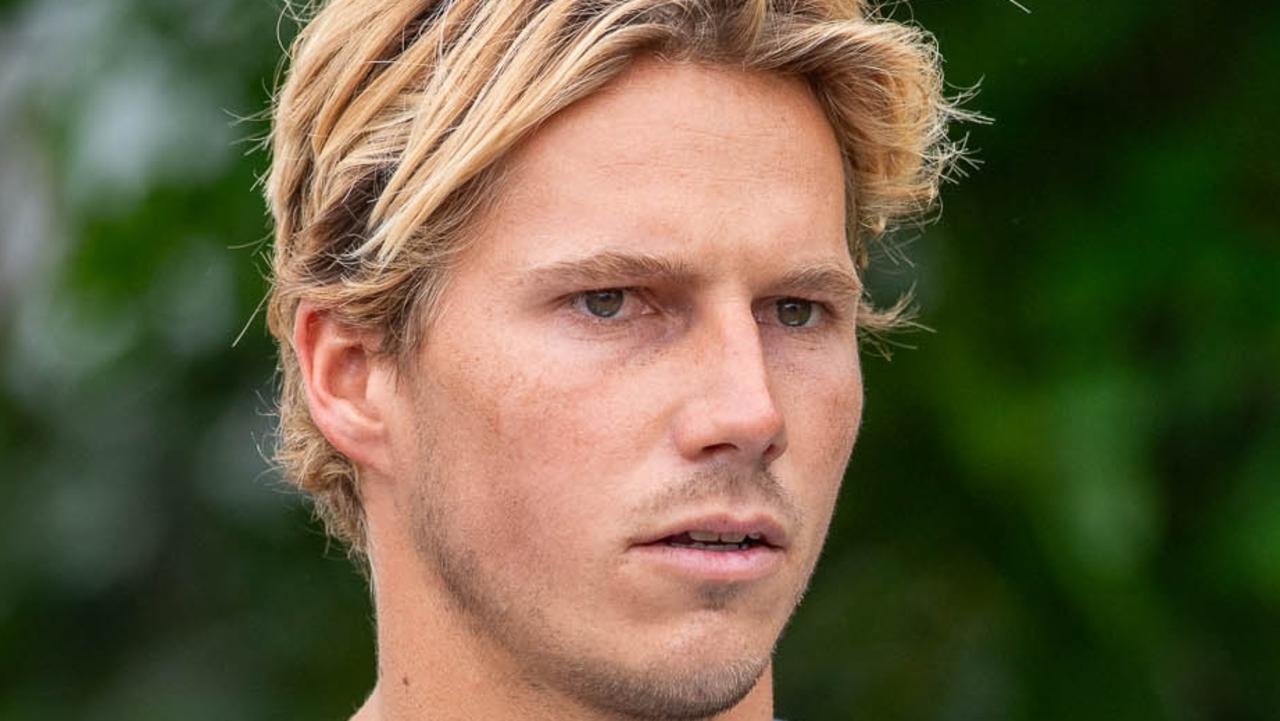Mates for life pay their respects on Anzac Day
John English and Alan Chandler sat in the front row, side by side, just as they did at war.

Sunshine Coast
Don't miss out on the headlines from Sunshine Coast. Followed categories will be added to My News.
JOHN English and Alan Chandler sat in the front row, side by side, just as they did at war.
Half a century has passed since the pair were burdened with the task of battle, yet their mateship was palpable.
Hand over heart, head bowed to the dirt, the men remembered all those lost in the Vietnam War at Buderim's Anzac Day service.
Yet unlike others who can only imagine the horrific fate our Australian soldiers met, the best mates witnessed it with their own eyes.
The year was 1969. Mr English, a national serviceman, and Mr Chandler, a regular solider, met serving in the 9th Battalion, the Royal Australian Regiment, at Nui Dat in the Phuoc Ty province.
"We had the most unfortunate circumstances of losing more men in any tour than any battalion in Australia,” Mr English said. "Thirty-five killed, 150 wounded.”
But the cruel outcome of war only brought the two veterans closer.
"When you're living a life, day to day, minute by minute, where you're relying on those around you to keep you alive, you form a strong bond,” Mr English said.
"You go through the deepest of feelings, because you are s--t scared, to be honest. You bloody don't know whether you're going to die in the next five minutes, so you all get to know what each other are made of.”

The 71-year-old, above all, honoured those of his mates who didn't have the chance to grow old.
"With the situations we've been in, we can actually put names and faces to the young men who died when they were 21,” Mr English said.
"I think about who they were, that they never became a long-living person. Not just an anonymous name.
"Because if you're anyone who is going to die in a war, unlike the Romans who used to get given land if they served, you really just get your pay and that's about it.
"The only thing you can hope for is that your death will be remembered.”
Mr Chandler was hopeful for the future of Anzac Day commemorations.
"As the Second World War diggers got older, I thought the day would have died out,” he said.
"But I look around at all the young ones, I look at the school bands in the street, I see the involvement of the children, and I'm not worried any more.
"We saw the future of Anzac Day today.”


